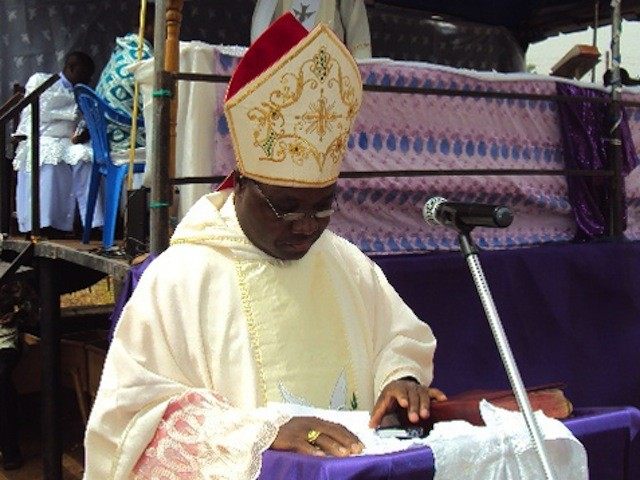Learning of the massive international response to the recent Islamist attack on Charlie Hebdo in Paris, Ignatius Kaigama, the Archbishop of Jos, wonders whether the world has forgotten about Nigerians who suffer the ongoing assault of Boko Haram.
“Do not forget that we are here,” Kaigam pleads. “Hundreds of people have been killed, and thousands have been displaced and have place no place to live. We need help and practical support for put an end to these attacks.”
On Sunday, as many as 3 million people, including 40 world leaders, filled the streets of Paris in an unprecedented rally for unity after two separate terrorist attacks claimed 17 innocent lives last week. The rally was the largest demonstration in France’s history, and the French ministry said the demonstrators were so numerous they spread beyond the official route, making them impossible to count.
The same day that Islamic radicals attacked the Paris offices of Charlie Hebdo, the Nigerian jihadist group Boko Haram laid siege to Baga, a city that had held out against them. The militants went on a killing spree, burning buildings to the ground and murdering residents indiscriminately, leaving a death toll exceeding 2,000. Hundreds more plunged into Lake Chad in an attempt to swim to a nearby island. Many drowned along the way and some 20,000 others are now displaced.
The day before, a young girl strapped with explosives approached the entrance to a crowded market in Maiduguri, the capital city of Nigeria’s Borno State. As a security guard inspected her, the girl detonated the explosives, killing herself and at least 19 others, and injuring dozens more.
While the Paris attacks were blazoned all over the front page of The New York Times, the story of the Boko Haram siege on Baga, one of the deadliest terror attacks in history, finally appeared on page A6 of Saturday’s print edition, while the paper’s story of the suicide bombing wound up on page A8.
It isn’t hard to understand why Nigerians feel forgotten.
“The attacks are becoming more numerous and we need improved security, we hope that the government and leaders of the international community can do something to put an end to the violence,” said Archbishop Kaigam. He notes that greater determination is needed to stop the advance of the movement in the country, something akin to the spirit of unity and courage shown after the recent Paris attacks.
According to the spokesman of Nigeria’s Ministry of Defense “Boko Haram is the evil that all of us must eliminate together,” while UN Secretary General Ban Ki-moon condemned the massacres as “depraved acts of the terrorists of Boko Haram.”
The Archbishop says it is urgent that “more attention” be paid to the violence that occurs with growing frequency in his country, which threatens to plunge the country into chaos. “Please do not forget that we are here and that we are suffering,” said Kaigama.
Founded in 2002, Boko Haram began as an extremist movement against Western education. The name “Boko Haram,” in fact, in the Hausa language means “Western education is forbidden.” Since 2009, the group has stepped up its attacks and grown in ambition, with the intention of creating an Islamic state. It has already claimed many thousands of lives, and controls some 20,000 square miles of land, a territory about the size of Belgium.
Follow Thomas D. Williams on Twitter @tdwilliamsrome

COMMENTS
Please let us know if you're having issues with commenting.